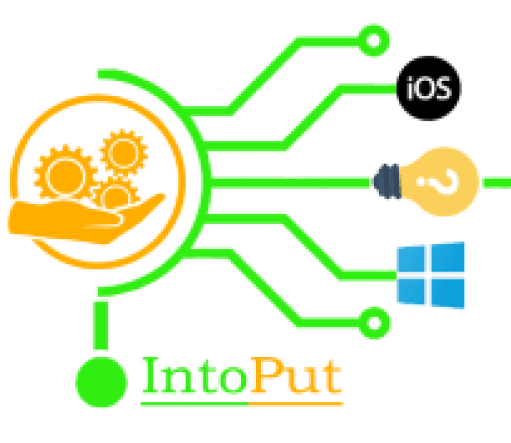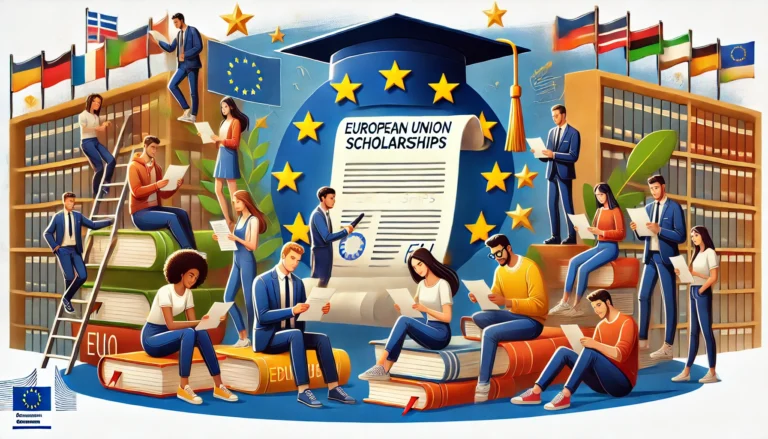Winning a European Union (EU) scholarship can open doors to world-class education, cultural immersion, and career opportunities. These scholarships are highly competitive, but with the right strategy and preparation, you can stand out and secure the funding you need. Here’s your step-by-step guide to winning an EU scholarship, along with insider tips to boost your chances of success.
1. Understand EU Scholarship Opportunities
The European Union offers several prestigious scholarship programs for international students, including:
- Erasmus Mundus Joint Master Degrees (EMJMD): Fully funded scholarships for master’s programs taught in multiple EU countries.
- Marie Skłodowska-Curie Actions (MSCA): Research grants for doctoral and postdoctoral students.
- Erasmus+ Mobility Grants: Funding for exchange programs and internships within EU countries.
- Horizon Europe Scholarships: Research and innovation grants for students in STEM fields.
Insider Tip: Explore country-specific or university-specific scholarships in addition to EU-wide programs, as these often have less competition.
2. Research Eligible Programs and Universities
Start by identifying programs and universities that align with your academic interests and career goals.
- Visit the Erasmus Mundus Catalogue or official university websites for a list of eligible programs.
- Ensure that your preferred program is hosted by reputable institutions in participating EU countries.
- Check if the program offers English-taught courses if you’re not fluent in the local language.
Insider Tip: Shortlist programs that match your background and strengths to increase your chances of standing out as a candidate.
3. Meet Eligibility Criteria
Each EU scholarship has specific eligibility requirements. Common criteria include:
- Academic excellence.
- Relevant work or research experience.
- Language proficiency (e.g., IELTS, TOEFL, or equivalent certifications).
- Nationality requirements (some scholarships target specific regions or countries).
Insider Tip: Even if you don’t meet 100% of the requirements, highlight transferable skills or experiences in your application.
4. Prepare a Strong Application Package
A compelling application is your ticket to winning an EU scholarship. Focus on the following components:
a. Personal Statement or Motivation Letter
- Clearly outline your academic goals and how they align with the program’s objectives.
- Highlight your unique skills, achievements, and experiences.
- Explain how the scholarship will help you contribute to society or your field of study.
b. Academic Transcripts and Certifications
- Provide accurate and well-organized documents.
- Translate them into English or the host country’s language if required.
c. Letters of Recommendation
- Request letters from professors, mentors, or employers who know your academic and professional capabilities.
- Ensure the recommendations are tailored to the program’s requirements.
d. CV or Resume
- Use a clean, professional format like Europass.
- Focus on academic achievements, research projects, internships, and extracurricular activities.
Insider Tip: Review successful application samples or guides to understand what evaluators look for in each component.
5. Demonstrate Language Proficiency
Most EU scholarships require proof of language skills, especially for English-taught programs.
- Accepted Tests: IELTS, TOEFL, or Cambridge English qualifications.
- Preparation Tips:
- Enroll in online courses or practice tests to improve your scores.
- Focus on academic writing and speaking skills.
Insider Tip: If you’re fluent in the local language, include a certificate or evidence of language proficiency for an added advantage.
6. Showcase Leadership and Extracurricular Activities
Scholarship committees value candidates who demonstrate leadership, teamwork, and community involvement.
- Highlight roles in student organizations, volunteer projects, or professional experiences.
- Discuss how these activities have shaped your problem-solving and interpersonal skills.
Insider Tip: Focus on activities that align with the program’s core values, such as sustainability, innovation, or cultural exchange.
7. Craft a Winning Research Proposal (for Research-Based Scholarships)
If applying for a research grant, your proposal must showcase originality and relevance.
- Clearly define your research question, objectives, and methodology.
- Explain how your research contributes to your field and aligns with EU priorities.
- Mention potential supervisors or host institutions you wish to collaborate with.
Insider Tip: Reach out to professors or researchers at the host institution for guidance and letters of support.
8. Leverage Networking Opportunities
Networking can give you a competitive edge in securing an EU scholarship.
- Connect with Alumni: Reach out to past scholarship recipients for advice and insights.
- Attend Webinars and Information Sessions: Many programs host online events to guide applicants.
- Engage with Professors and Coordinators: Build relationships with faculty members at your target university.
Insider Tip: Join social media groups or forums dedicated to Erasmus+ or other EU scholarships for peer support and updates.
9. Submit Early and Follow Instructions
Scholarship deadlines are strict, and late applications are typically not accepted.
- Start your application process early to avoid last-minute stress.
- Double-check that all required documents are included.
- Adhere to word limits and formatting guidelines.
Insider Tip: Submitting early shows enthusiasm and leaves time to address any technical issues.
10. Ace the Scholarship Interview
Many EU scholarships include an interview stage for shortlisted candidates.
- Preparation Tips:
- Research the program and its goals thoroughly.
- Practice answering common questions about your background, goals, and motivation.
- Prepare questions to ask the interview panel, demonstrating your interest.
Insider Tip: Treat the interview as a conversation. Be confident, authentic, and professional.
Frequently Asked Questions (FAQs)
1. Are EU scholarships fully funded?
Many EU scholarships, such as Erasmus Mundus and MSCA, cover tuition fees, living expenses, and travel costs. However, some programs may only offer partial funding.
2. Can non-EU nationals apply for EU scholarships?
Yes, most EU scholarships are open to non-EU nationals, with some specifically targeting students from developing countries.
3. How competitive are EU scholarships?
EU scholarships are highly competitive, but a strong application that aligns with the program’s objectives can significantly improve your chances.
4. Do I need prior work experience to apply?
Some scholarships, like the DAAD and MSCA, prefer candidates with relevant work or research experience, but this is not a universal requirement.
5. Can I apply to multiple EU scholarships?
Yes, applying to multiple scholarships increases your chances of success, but ensure that your applications are tailored to each program.
6. When should I start preparing my application?
Begin at least 12 months in advance to research programs, gather documents, and meet eligibility requirements.
Conclusion
Winning a European Union scholarship requires a combination of academic excellence, strategic planning, and persistence. By following these insider tips, you can craft a strong application and position yourself as a standout candidate. Start early, leverage available resources, and take proactive steps to turn your dreams of studying in Europe into reality.

